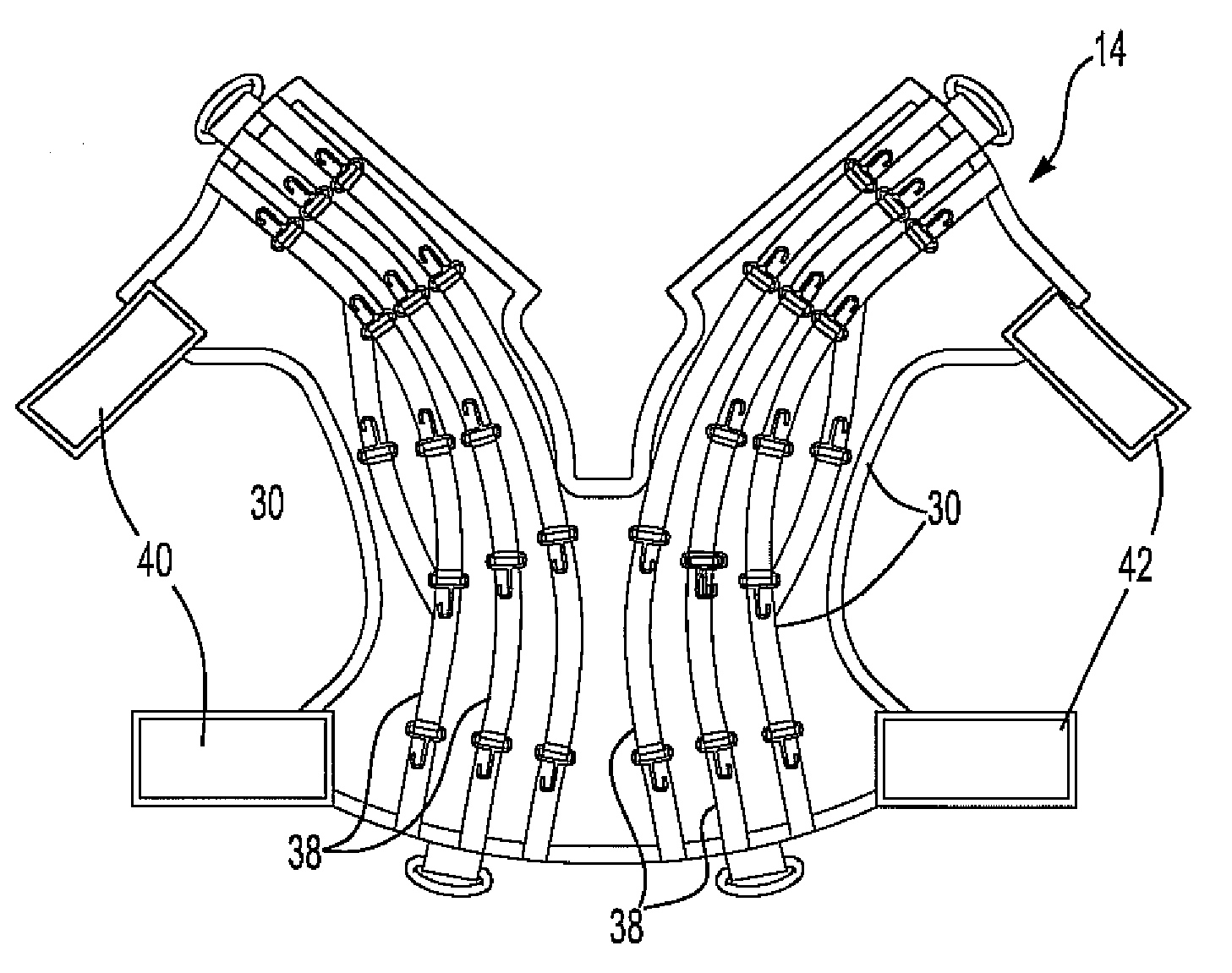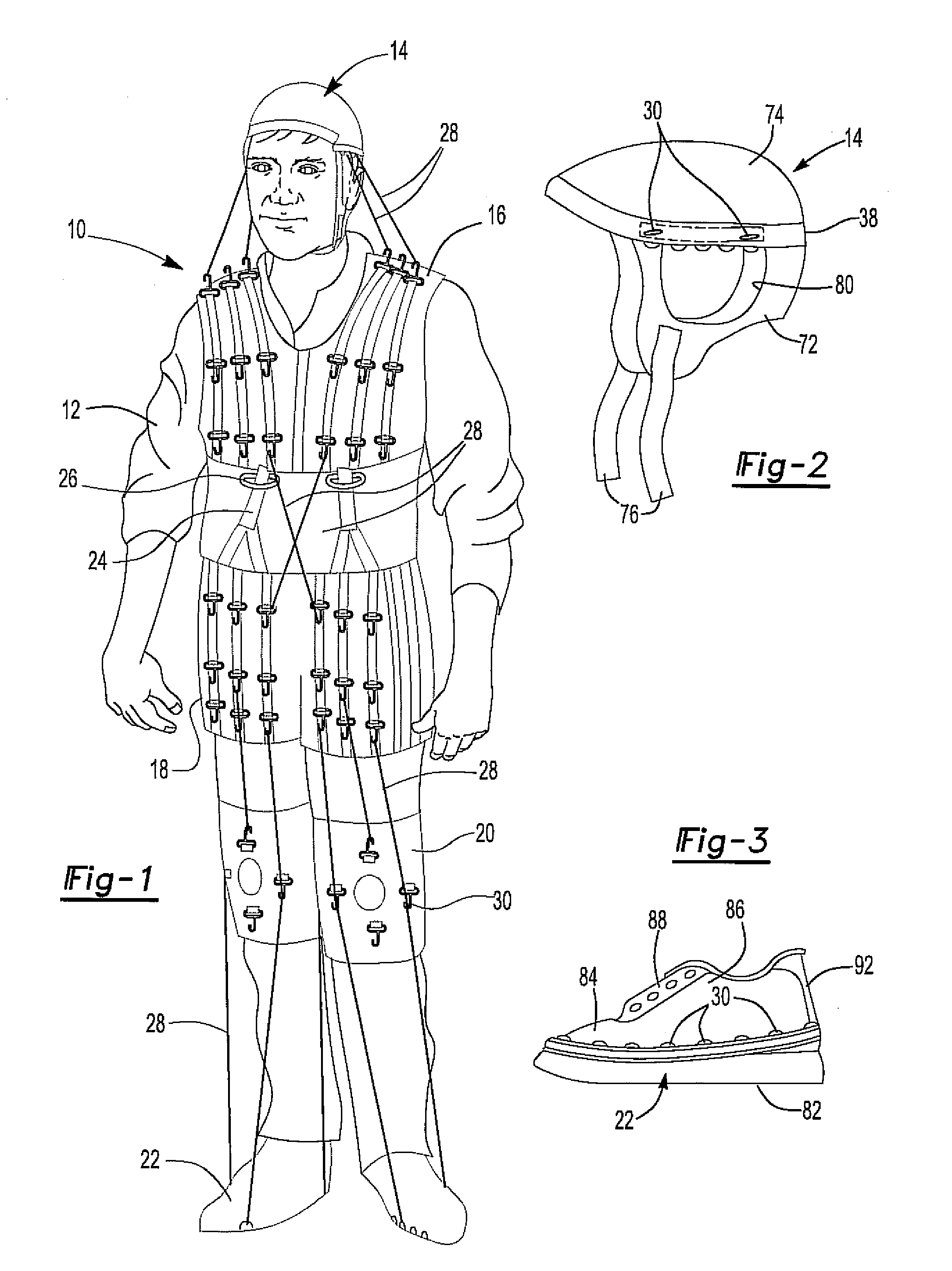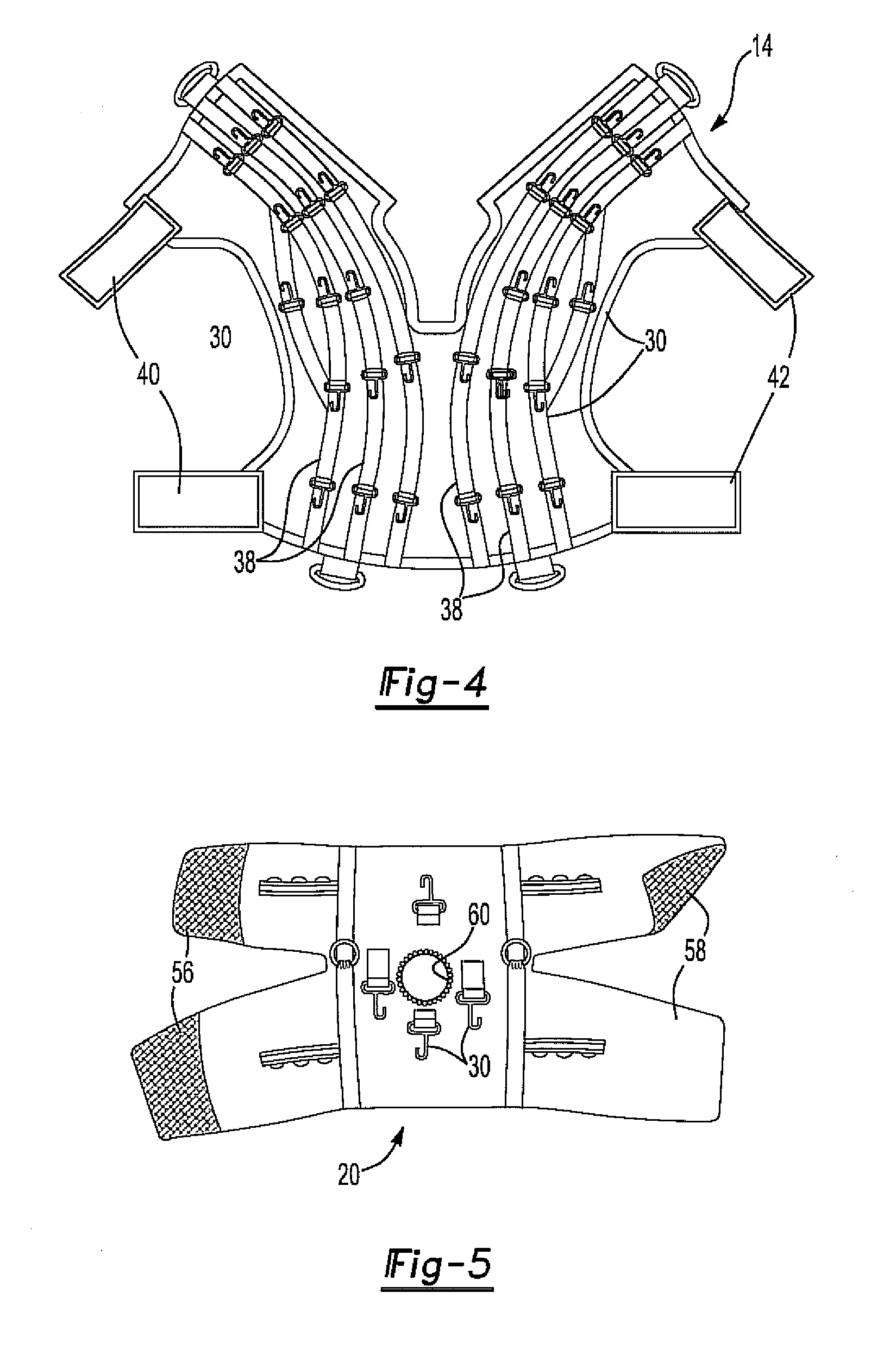Neurological motor therapy suit
a neuromuscular and suit technology, applied in the field of neuromuscular motor therapy suits, can solve the problems of inability to control the muscles to effect normal movements inconvenient use of neurological therapy suits, etc., and achieve the effect of minimizing or completely eliminating any movement of the pant garmen
- Summary
- Abstract
- Description
- Claims
- Application Information
AI Technical Summary
Benefits of technology
Problems solved by technology
Method used
Image
Examples
Embodiment Construction
[0022]With reference first to FIG. 1, a preferred embodiment of the neurological therapy suit 10 of the present invention is there shown attached to a patient 12. The therapy suit 10 includes a vest 16 and pant garment 18.
[0023]With reference now particularly to FIGS. 1 and 4, the vest 14 is there shown in greater detail and includes fasteners, such as hook-and-pile fasteners 40 on one side, and similar fasteners 42 on the opposite side so that, with the vest 16 positioned on the patient as shown in FIG. 1, the fasteners 40 are detachably secured to each other below one arm of the patient while, similarly, the fasteners 42 are detachably secured to each other around the other arm of the patient. The vest 16, furthermore, is constructed of a flexible, but substantially non-elastic material. Consequently, when the vest is secured to the patient, the vest 16 is snugly secured to the patient thus minimizing or eliminating movement of the vest relative to the patient.
[0024]As best shown ...
PUM
 Login to View More
Login to View More Abstract
Description
Claims
Application Information
 Login to View More
Login to View More - R&D
- Intellectual Property
- Life Sciences
- Materials
- Tech Scout
- Unparalleled Data Quality
- Higher Quality Content
- 60% Fewer Hallucinations
Browse by: Latest US Patents, China's latest patents, Technical Efficacy Thesaurus, Application Domain, Technology Topic, Popular Technical Reports.
© 2025 PatSnap. All rights reserved.Legal|Privacy policy|Modern Slavery Act Transparency Statement|Sitemap|About US| Contact US: help@patsnap.com



